Securing futures
Your latest update from ActionAid UK
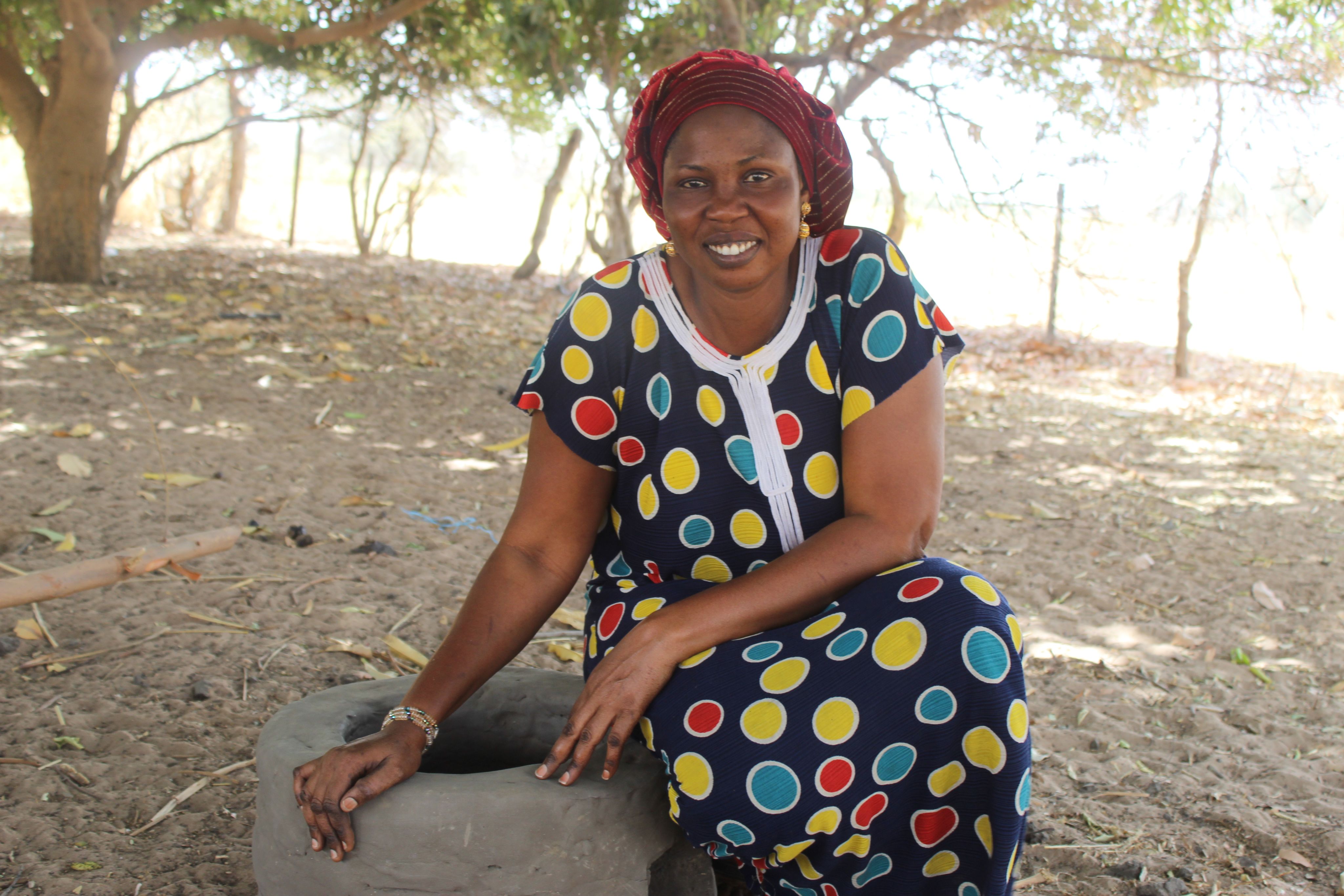
How women and girls are tackling climate change
Around the world, courageous women and girls are working together to combat the effects of climate change in their communities.
From planting trees to protect their local environment, to installing irrigation systems to increase food availability, to being prepared if a natural disaster strikes – women and girls are leading the way.
Read on to meet Munalula from Zambia - she is part of a group of students planting fruit trees - and Purnika, who has joined forces with other youths to help people prepare for emergencies.
Successes like these would not happen without the action and determination of communities around the world, supported by ActionAid, whose work is supported by you. Thank you.
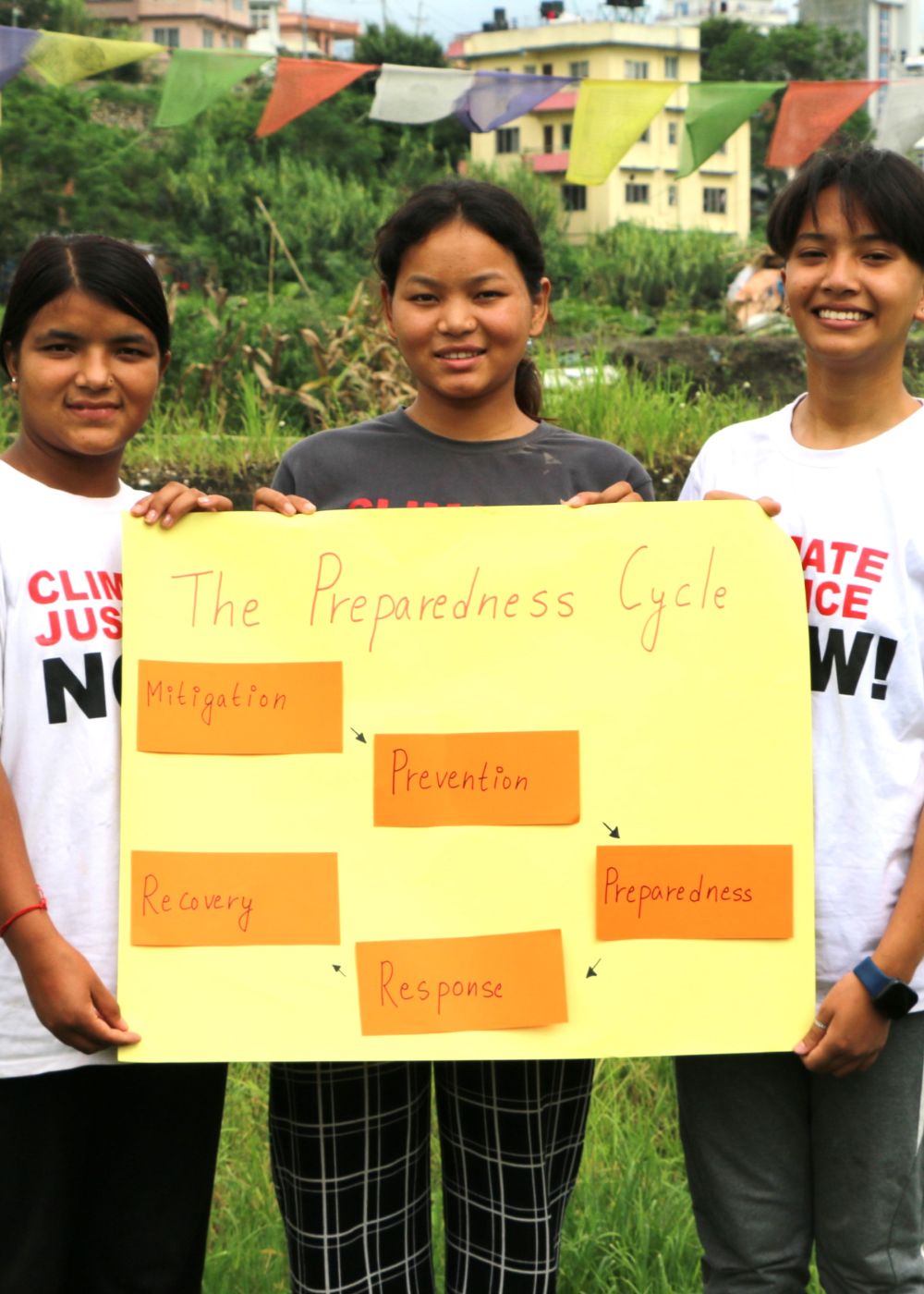
Purnika (right) and fellow youth volunteers during their disaster preparedness and resilience training in Nepal. Image: Angela Shrestha/ActionAid
Purnika (right) and fellow youth volunteers during their disaster preparedness and resilience training in Nepal. Image: Angela Shrestha/ActionAid
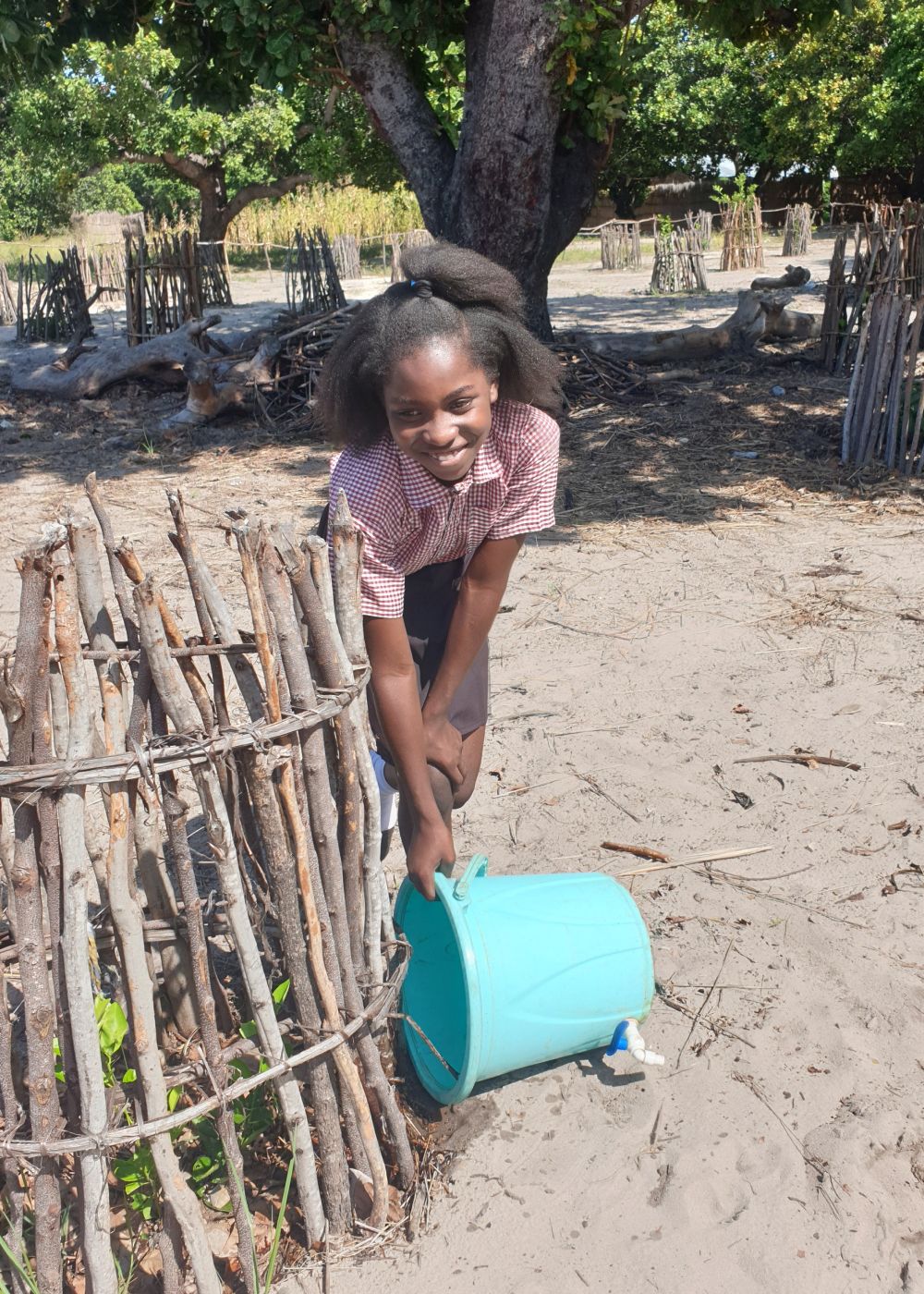
Munalula is leading the way by joining other children in her community to plant and nurture fruit trees. This not only helps to improve the environment, but is increasing livelihoods and nutrition. Image: Mubita Muyunda/ActionAid
Munalula is leading the way by joining other children in her community to plant and nurture fruit trees. This not only helps to improve the environment, but is increasing livelihoods and nutrition. Image: Mubita Muyunda/ActionAid
School orchards are helping with reforestation in Zambia
"The fruit trees we are planting in our schools are already improving the rainfall pattern," says nine-year-old Munalula, who lives in western Zambia.
Zambia has been heavily hit by the impacts of climate change. Droughts and floods have increased in intensity, negatively affecting livelihoods and agricultural production.
The government of Zambia takes this threat seriously, and in 2021 they launched their National Climate Learning Strategy. The strategy sets out how to develop and implement activities that will enable the country to address climate challenges, while cementing the country’s belief in bringing positive change through education.
One initiative to address deforestation is the introduction of fruit orchards in schools, which ActionAid is supporting.
In Munalula’s school they are growing lemon, orange and guava trees. The children themselves are involved with planting and caring for the trees, and learning about the importance of environmental conservation to protect their surroundings, livelihoods and food supplies.
"Our new agricultural science lessons, which involves taking care of the fruit orchard, teaches us lots of practical skills," says Munalula.
I visit my tree every day to see how it’s growing and make sure it’s healthy. I hope to eat one of the first fruits it produces and I look forward to taking them home to my family. This will help my parents as they will no longer have to buy fruit from the shop and will help provide us children with better nutrition.”
Emergency Go-Bags are helping with disaster preparedness in Nepal
"I am a youth volunteer in my community and received training on Youth Leadership in Humanitarian Action and Disaster Management," says 17-year-old Purnika.
Purnika lives in the Khatmandu Valley, where some villages are located along riverbanks, placing them at constant risk of flooding.
Along with other youth volunteers in her community, Purnika has been working to support community members to be prepared for natural disasters. One of their activities is Emergency Go-Bags.
Purnika says: "It was during the Humanitarian Action and Disaster Management training [supported by ActionAid] that we were introduced to the concept of the Emergency Go-Bag.
The Go-Bag should be a sturdy and easy to carry backpack containing items like water bottles, a torch, ready to eat food (biscuits and noodles), first aid kit, hygiene and sanitary items, and important documents such as citizenship cards and birth certificates.
"We were also taught to keep these bags ready packed and stored in a high place in case of flash floods.
"As a group we have been teaching our families, neighbours and wider communities to adopt the disaster preparedness and resilience techniques we learned. We have also been helping to provide and pack Emergency Go-Bags and have initiated the inclusion of contact numbers for essential services such as the Electricity Authority and emergency services."
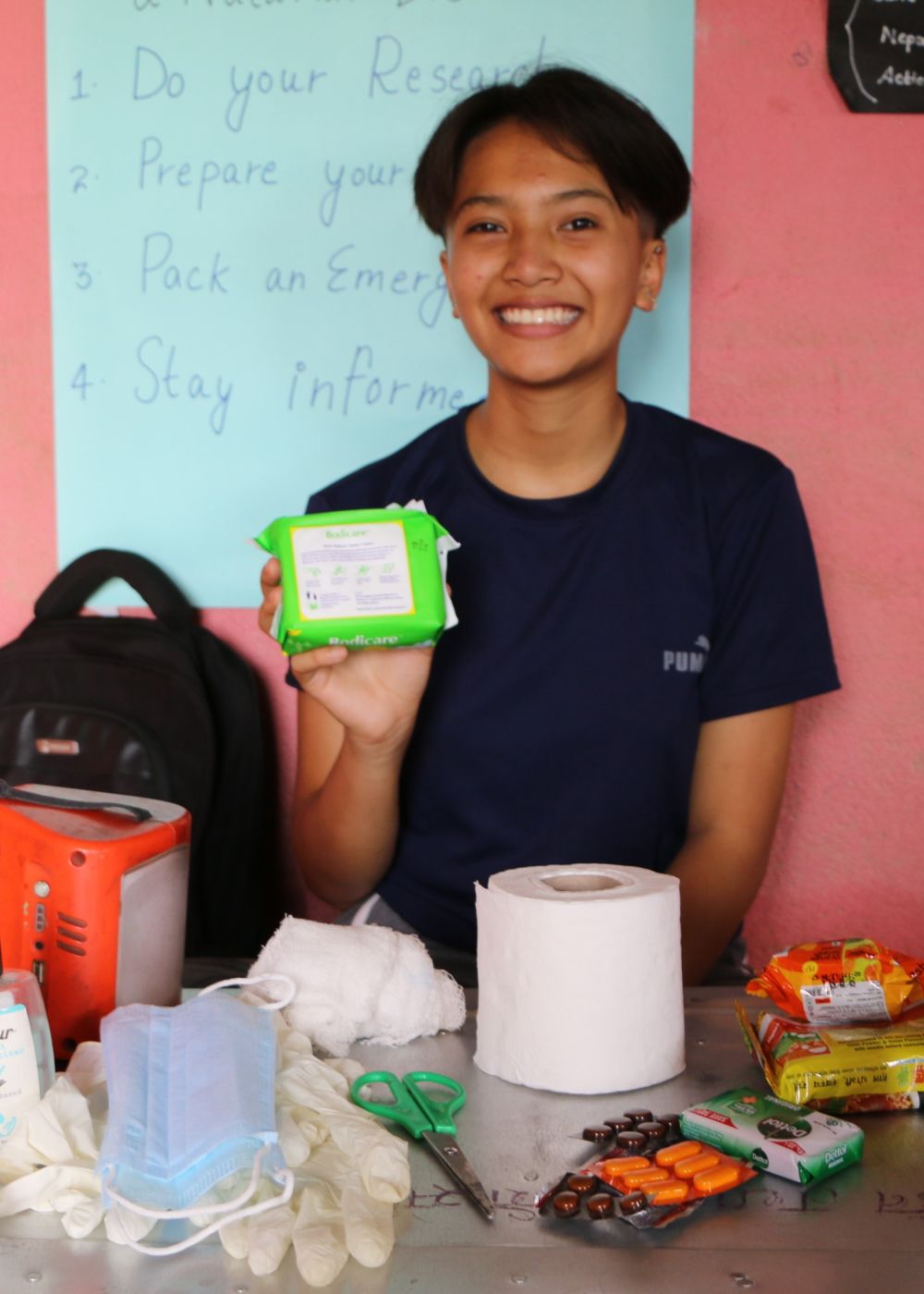
Purnika packing an Emergency Go-Bag with essential items – she is part of a collection of youth volunteers who are leading the way to help keep people safe during emergencies. Image: Angela Shrestha/ActionAid
Purnika packing an Emergency Go-Bag with essential items – she is part of a collection of youth volunteers who are leading the way to help keep people safe during emergencies. Image: Angela Shrestha/ActionAid
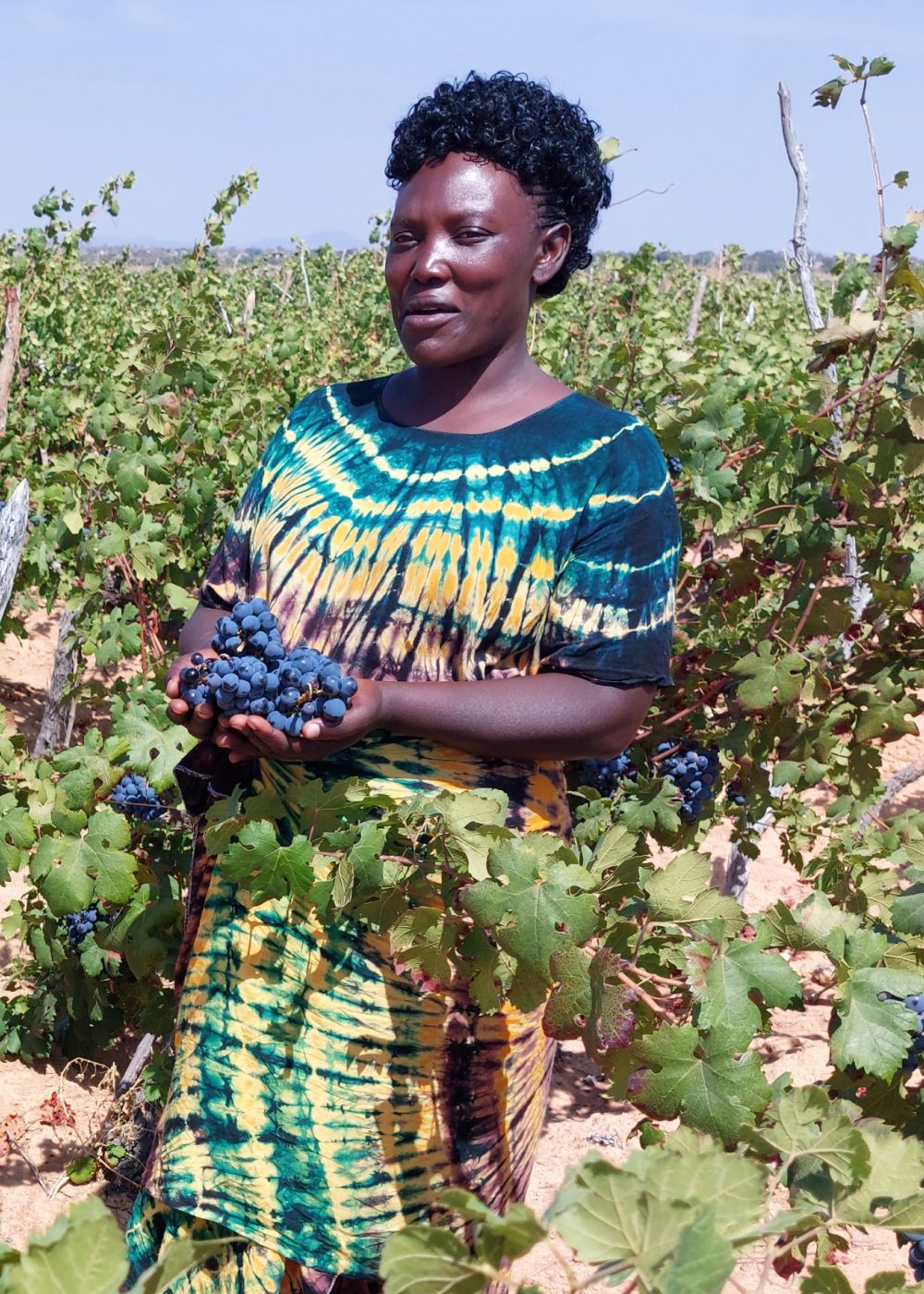
Yusta is one of hundreds of women learning agroecology and increasing their food production. Image: Joram Wimmo/ActionAid
Yusta is one of hundreds of women learning agroecology and increasing their food production. Image: Joram Wimmo/ActionAid
Women farmers are uniting to increase food production in Tanzania
"I used to grow just one crop year after year, but the yields were getting smaller because the soil was becoming infertile and the rains were unpredictable," says farmer and mother-of-three Yusta.
In the Dodoma region, central Tanzania, Yusta has joined hundreds of women to form the Smallholder Women Farmers Forum.
Together, they are transforming farming practices to adapt to their environment and climate, increasing their food supplies and incomes. In a country where farming provides 67% of its employment and 95% of food supplies, it is imperative that farmers like Yusta are developing projects to combat the effects of climate change and environmental degradation.
In partnership with ActionAid, we are learning how to grow a variety of crops on the same land, the importance of crop rotation, and the preparation and use of natural pesticides and organic compost. All with the aim of keeping the soil fertile and increasing our harvests."
Farmers are now seeing a significant increase in their harvests and food production. For example, Yusta now cultivates seven acres instead of two; her grape harvest has increased from one tonne to four tonnes, maize from 200kg to 800kg and millet from 300kg to 1,000kg.
"This increased production provides enough food for my family and a good surplus to sell," Yusta says. "This means my family’s income has increased and there is more food available for other families. By working together, we women farmers are mitigating the impact of climate change which is our biggest challenge."
Young people are working together to protect their environment in Bangladesh
"My community is highly affected by environmental pollution and my country is one of the most adversely affected countries due to climate change. But young people like me were not aware of this issue," says 23-year-old Salina, one of hundreds of young adults in south-east Bangladesh who are working together to fight the effects of climate change and environmental pollution.
In the area where Salina lives, 10 groups have been established where young people are learning about climate change and the importance of protecting their environment.
Together, they have worked with the local government to implement a weekly rubbish collection, organised tree planting initiatives, and encouraged people to use re-usable bags instead of plastic ones, amongst many other projects.
To bring positive change in our society, the role of young people is vital. Many young people, like me, are now devoted to working together to create a good environment and stopping the negative effects of climate change.
"I am truly grateful to ActionAid for working with us to create the youth groups. We now have opportunities and platforms to help bring about real change in our lives."
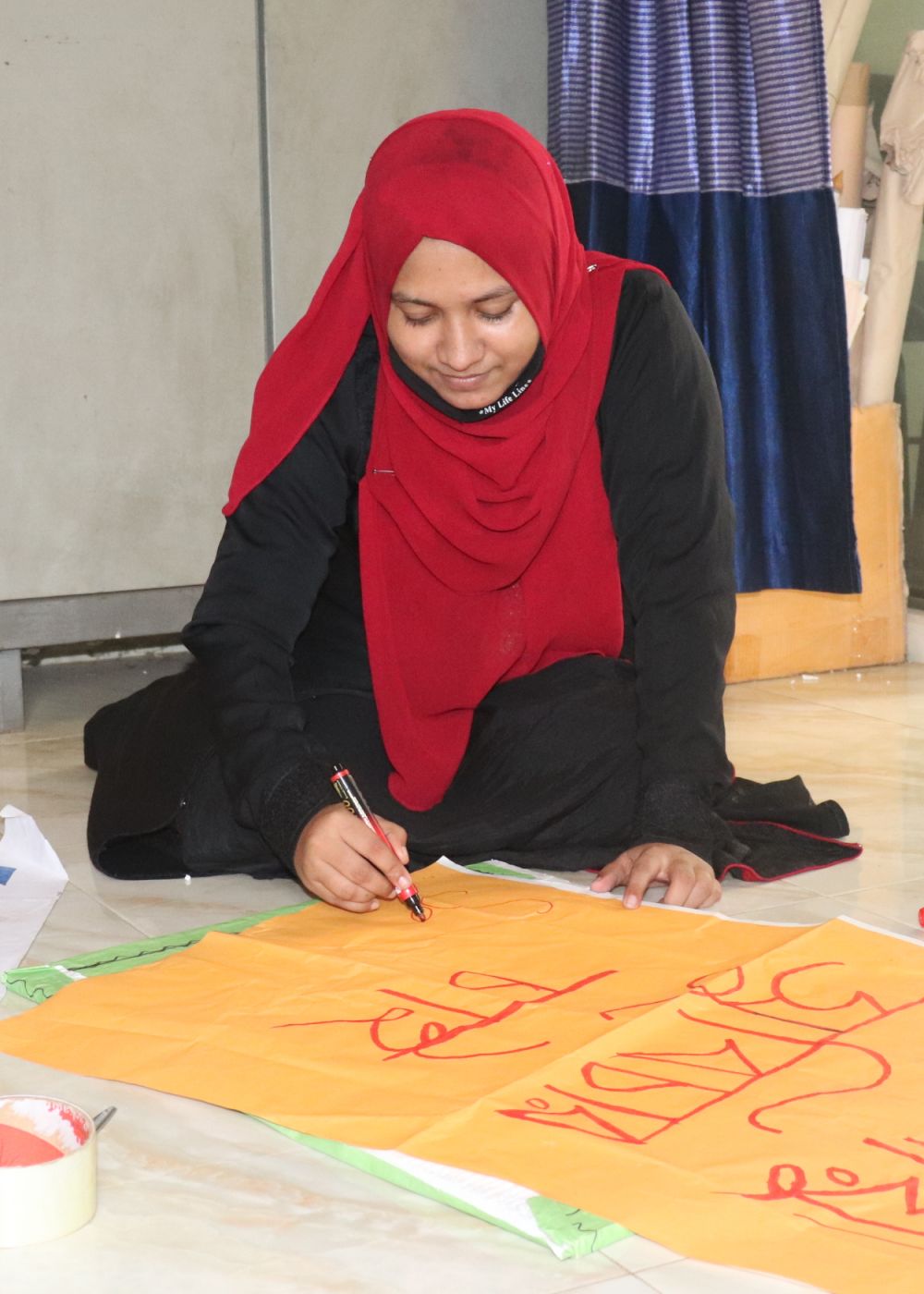
Salina making a poster for a climate change rally in her community. Image: Bishu Chakraborty/ActionAid
Salina making a poster for a climate change rally in her community. Image: Bishu Chakraborty/ActionAid
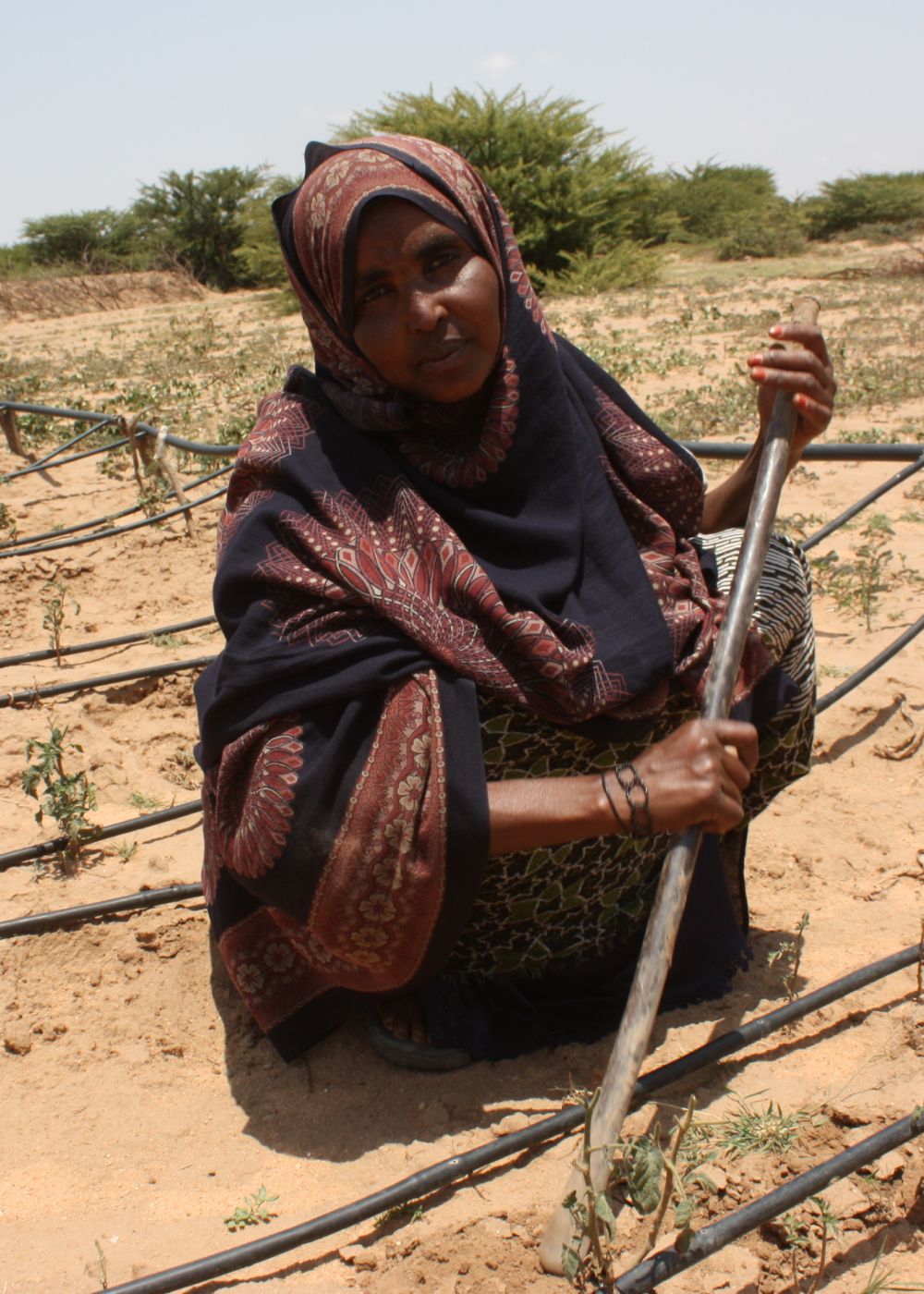
Drip irrigation systems help farmers like Sureer grow crops even during periods of drought. Image: Sulekha Muhumed Nuh/ActionAid
Drip irrigation systems help farmers like Sureer grow crops even during periods of drought. Image: Sulekha Muhumed Nuh/ActionAid
Irrigation systems are tackling the effects of drought in Somaliland
"In recent years we have experienced a shortage of rainwater which has discouraged us from planting, especially during the dry season," says Sureer, a farmer living in central-eastern Somaliland. "We did not know how to use the amount of water we have sufficiently."
Although drought is a regular occurrence in Somaliland, the rains used to eventually arrive giving families an opportunity to recover. But in recent times the rains have been much more erratic, either not enough or not arriving at all.
By working with women farmers like Sureer to construct and install water sources such as shallow wells, rainwater collection basins and drip irrigation systems, their families and communities have the resources to be more resilient to the effects of drought and food shortages.
"Drip irrigation saved my time, energy, and money," Sureer says.
The system helps me to have sufficient water for my crops by easily dripping water into the roots. This has encouraged me to plant more crops such as cabbage, tomato, and lettuce, increasing my food production."
Tree-planting is protecting schools from searing heat in Tanzania
"We have planted 200 trees in and around our school and village over the past two years," says 12-year-old Zawadi, from Tanzania.
"We are hoping they will help solve the main climate issues we face such as a shortage of rainfall and drinking water; hot, dusty classrooms and school yards with no shade; eye infections from dust; and flash flooding that sometimes washes away our homes and classrooms."
In the district where Zawadi lives, in the east of Tanzania, the impact of climate change is being keenly felt.
Periods of high temperatures, droughts and flash floods are increasing, causing crops to perish or wash away, water sources to dry up and homes to flood. For children like Zawadi the school environment can be very uncomfortable. The classrooms are too hot and dusty, with no shade to relieve the heat.
ActionAid is working with child clubs in 11 schools in partnership with DIRA YETU, an organisation that works in this area of Tanzania.
These child club members have helped to involve over 6,000 children in discussions about the impacts of climate change and what they can do to mitigate those impacts in their villages and schools. Zawadi says:
The trees will help to keep our classrooms cool when it is very hot and provide us somewhere shady during our breaks.
"As well as planting and caring for the trees, our other environmental activities include collecting plastic waste from around our school."
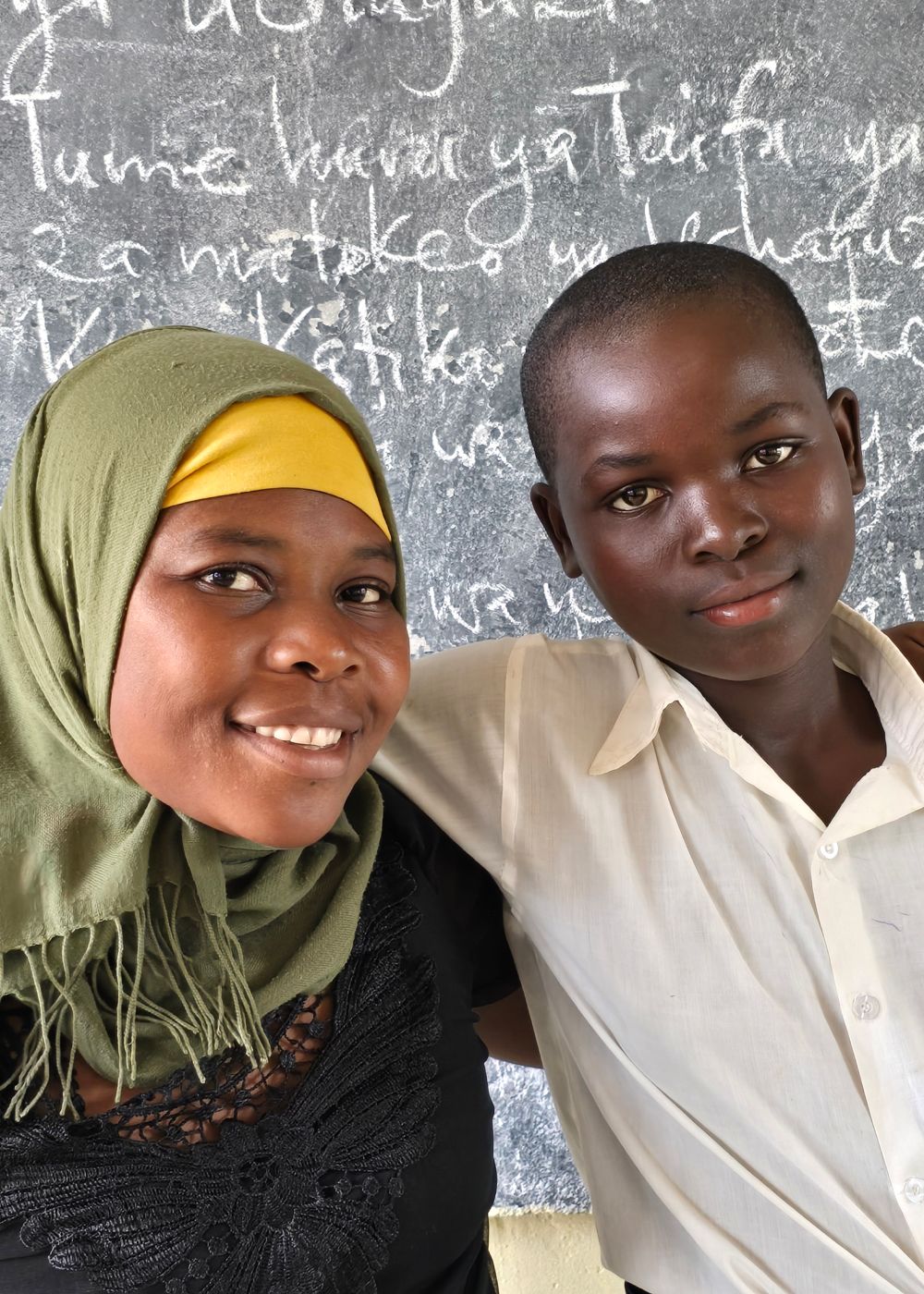
12-year-old Zawadi (pictured here with her teacher) is an environment champion and is part of a school club that has planted over 200 trees. Image: Ramadhan Kawanga/ActionAid
12-year-old Zawadi (pictured here with her teacher) is an environment champion and is part of a school club that has planted over 200 trees. Image: Ramadhan Kawanga/ActionAid
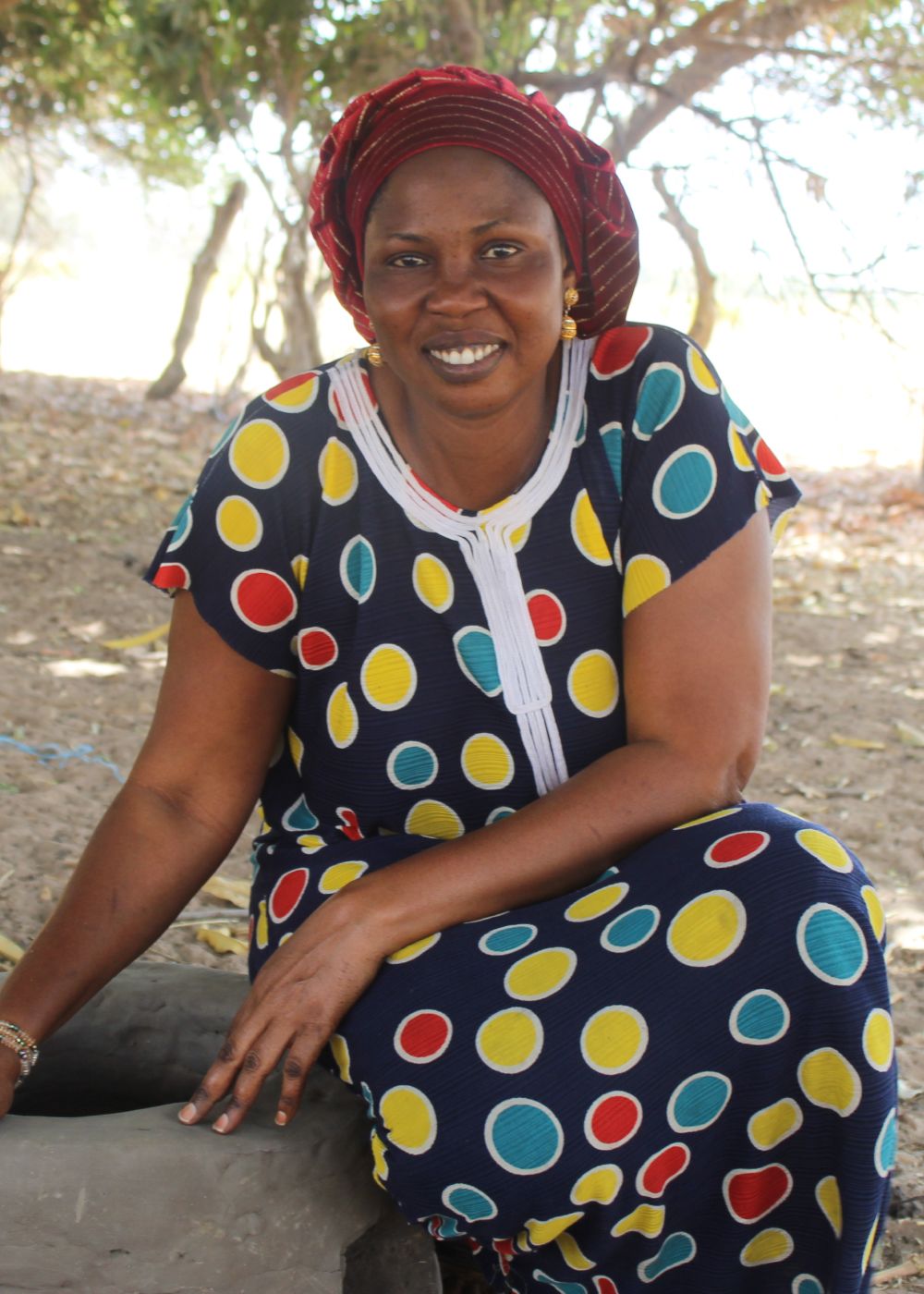
Mariama, with her new eco stove, is one of many women leading the way to address the effects of climate change in her community. Image: Mame Sakou Sarr Ramadhan Kawanga/ActionAid
Mariama, with her new eco stove, is one of many women leading the way to address the effects of climate change in her community. Image: Mame Sakou Sarr Ramadhan Kawanga/ActionAid
Smokeless ovens are creating a cleaner environment in Senegal
"The forest where we used to collect firewood to make charcoal for cooking and to sell is no longer accessible to us due to deforestation and population growth," says Mariama, president of her local women’s group in Senegal.
Mariama is among 50 women from 10 villages in Djilor, Senegal, who came together at a 'training of trainers' group to learn how to make and use ecological ovens, which use considerably less firewood.
By training others, women like Mariama are helping to reduce the reliance on wood to cook and the production of charcoal to earn a living, as these processes have a detrimental impact on the environment.
Participants also learned how to make organic soap using materials available locally, as an alternative source of income to charcoal production.
So far, over 100 women have built their own ecological stoves and are working together to create a soap making business.
In a short space of time there has been a sharp reduction in the use of firewood. Not only does this protect trees, but the new ovens produce far less smoke, which results in cleaner air. This is thanks to community trainers like Mariama. She says:
I am very happy to have learned these new skills as are the women I train. We are using far less firewood and spending much less time collecting it, which gives us time to spend on other activities, such as soap making.
"We are hopeful of making a good income from selling the soap and living in a better environment."
